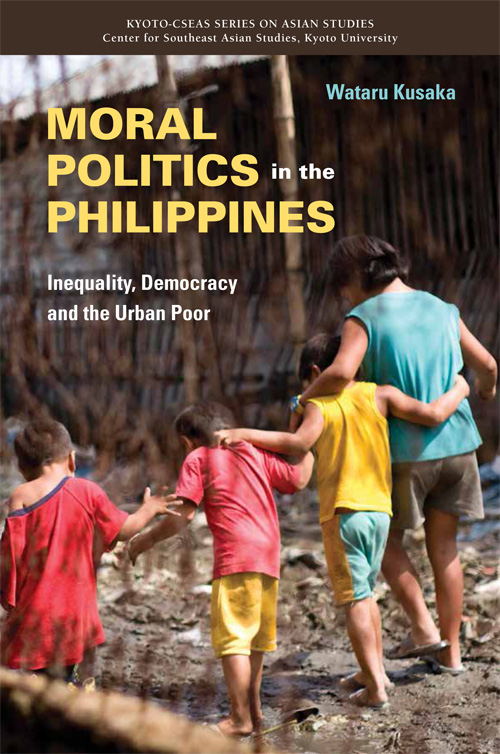Home > Book Detail Page

Kyoto CSEAS Series on Asian Studies
Moral Politics in the Philippines
: Inequality, Democracy and the Urban Poor
229x152x17,paper, 356 pages
ISBN: 9784814000661
pub. date: 02/17
Written Language: English
Publisher: NUS Press & Kyoto University Press
“The people” famously ousted Ferdinand Marcos from power in the Philippines in 1986. After democratization, though, a fault line appeared that split the people into citizens and the masses. The former were members of the middle class who engaged in civic action against the restored elite-dominated democracy, and viewed themselves as moral citizens in contrast with the masses, who were poor, engaged in illicit activities and backed flawed leaders. The masses supported emerging populist counter-elites who promised to combat inequality, and saw themselves as morally upright in contract to the arrogant and oppressive actions of the wealthy in arrogating resources to themselves.
In 2001 the middle class toppled the populist president Joseph Estrada though an extra-constitutional movement that the masses denounced as illegitimate. Fearing a populist uprising, the middle class supported action against informal settlements and street vendors, and violent clashes erupted between state forces and the poor. Although solidarity of the people re-emerged in opposition to the corrupt presidency of Gloria Macapagal Arroyo and propelled Benigno Aquino III to victory in 2010, inequality and elite rule continue to bedevil Philippine society. Each group considers the others as a threat to democracy, and the prevailing moral antagonism makes it difficult to overcome structural causes of inequality.
In 2001 the middle class toppled the populist president Joseph Estrada though an extra-constitutional movement that the masses denounced as illegitimate. Fearing a populist uprising, the middle class supported action against informal settlements and street vendors, and violent clashes erupted between state forces and the poor. Although solidarity of the people re-emerged in opposition to the corrupt presidency of Gloria Macapagal Arroyo and propelled Benigno Aquino III to victory in 2010, inequality and elite rule continue to bedevil Philippine society. Each group considers the others as a threat to democracy, and the prevailing moral antagonism makes it difficult to overcome structural causes of inequality.
Wataru Kusaka is associate professor at the Graduate School of International Development, Nagoya University.
List of Illustrations
Preface
Introduction: Philippine Democracy and Moral Politics
1. Analytical Framework
2. Formation of the Dual Public Sphere
3. People Power and Moral Antagonism
4. Moral Antagonism in Elections
5. Moral Antagonism in Urban Governance
6. The Revival of Moral Nationalism
7. Beyond Moral Politics
Addendum
Afterword
Notes
Bibliography
Index
Preface
Introduction: Philippine Democracy and Moral Politics
1. Analytical Framework
2. Formation of the Dual Public Sphere
3. People Power and Moral Antagonism
4. Moral Antagonism in Elections
5. Moral Antagonism in Urban Governance
6. The Revival of Moral Nationalism
7. Beyond Moral Politics
Addendum
Afterword
Notes
Bibliography
Index











